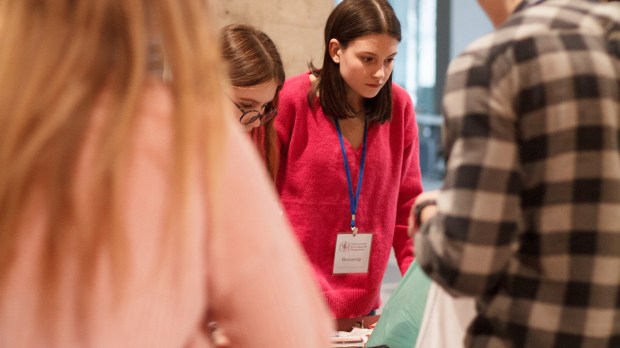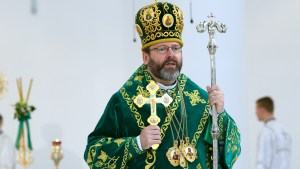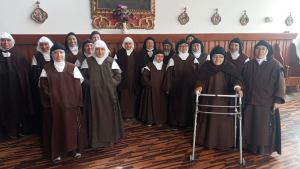The Ukrainian Catholic University is the only Catholic university in the former Soviet Union. Right now, its usual routine of classes has been somewhat interrupted. But that’s not because the city of Lviv, where “UCU” is located, is under Russian military attack. Rather, the university is doing what it can to help support both Ukrainian troops and civilian refugees.
Over the last weekend of February, just days after Russian President Vladimir Putin ordered an invasion of Ukraine, UCU set up a Humanitarian Support Collection Center on its campus. In response to the significant need and request for medicine and medical supplies, UCU’s Sheptytsky Center has become a collection site for military equipment and medical supplies.
The effort is involving both students, university administrators, refugees and citizens of Lviv.
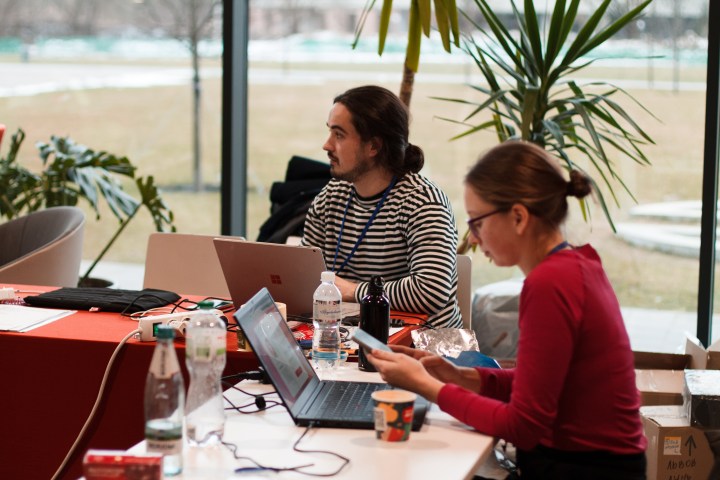
“The main aim was to give an opportunity to local people in Lviv to take part in the front line of the war against Russia but while being here,” said organizer Bohdan Petryshak, 24, an UCU alumnus and computer programmer. “We want to make lots of opportunities for students and people who come from the territories where there are currently battles so they can gather either ammunition or medicine and send to the guys on the front line and support them as much as possible.”
The collection center gathers ammunition, helmets, thermal imaging and night vision devices, drones, painkillers, syringes, blood transfusion systems, tourniquets, dressings, antibiotics, medical gloves, medical screws, blankets, and meal kits.
Anna Turchynovska, 23, a graduate student at UCU studying public administration, is assisting the effort by communicating needs to donors. She said that the project is receiving donations from local citizens, as well as Ukrainians and non-Ukrainians in Poland, the Czech Republic, France, and other countries.
For much of the material coming from abroad, Turchynovska said that people bring items on buses to the border, pass through customs, and hand them over to volunteers from UCU, who take them back on their own buses.
Petryshak said that one means of getting the materials to the front line is through Plast, the Ukrainian scouting organization, which has many contacts in the military, as many soldiers are former members.
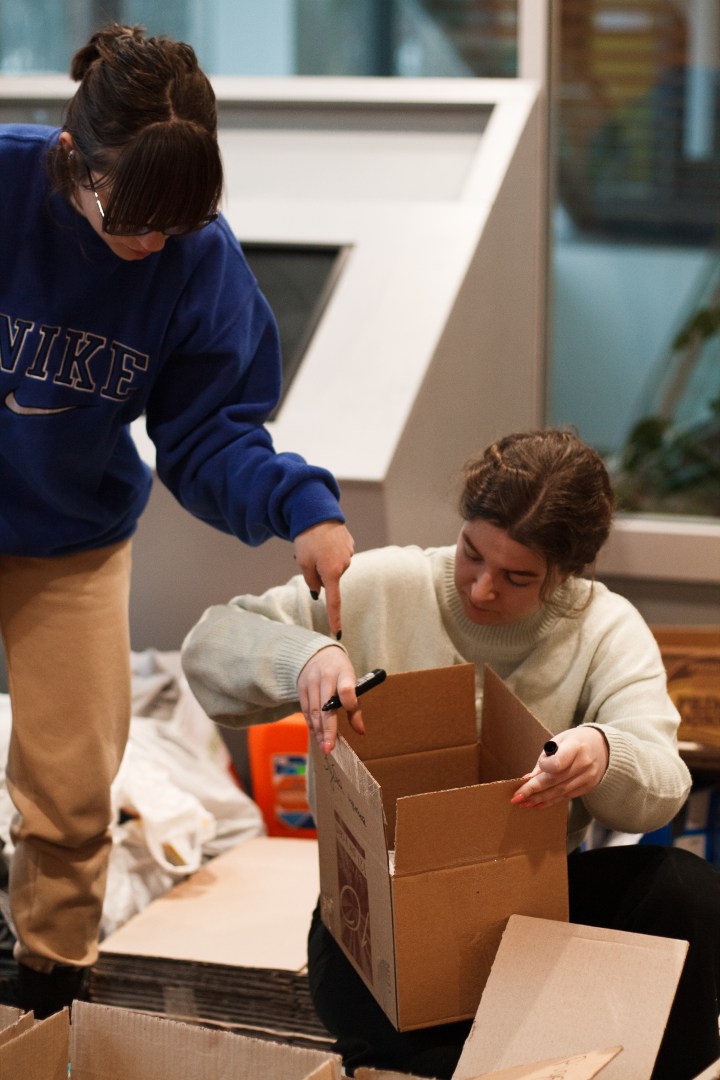
Efforts such as this seem to have the blessing of religious leaders. On Wednesday, ecumenical and interreligious spiritual leaders gathered at historic St. Sophia Cathedral in Kyiv to pray together, even as the capital was being shelled with Russian rockets, Catholic News Service reported. The All-Ukrainian Council of Churches and Religious Organizations organized the event to coincide with a global day of prayer for peace called by Pope Francis.
Among their prayers, the group said, “We pray especially for the defenders of Ukraine — men and women, as well as everyone who, through conscientious work, volunteer initiative and responsible citizenship, strengthens the defense capability of our state. Let us unite and preserve our faith, peace in our hearts, and confidence that the Almighty is on the side of those who are being wronged, and therefore these trials only strengthen us for victory.”
The choice of the venue was significant, as Ukrainian military intelligence the day before had identified the millennium-old cathedral as a target of a potential Russian military attack.
The UCU project is helping not only to supply the Ukrainian military; it’s also a way to help refugees put their mind to something in the midst of sometimes traumatic situations. They left their homes upon the start of the invasion and made sometimes difficult journeys to safer parts of the country. Women very often were parted from their husbands, who were called up for military service on short notice. UCU has made space for many refugees on campus – those who decided not to travel further west to Poland or those who might be in transit.
“They are full of fears and bad emotions, and in order to cope with that, we need to somehow provide some work for them so that they will be doing something and not just thinking about their relatives and friends and about the war,” Petryshak said.
He also said in a video published by the university that certain tech-savvy students are spending their time identifying and countering “fake news” allegedly produced by “Russian bots.”
With students, refugees and ordinary citizens of Lviv, Petryshak said there’s been an overwhelming number of people volunteering – more than can be managed.
“We have to tell people to go rest, go have some food,” he said. “They’re always ready to help day and night.”
